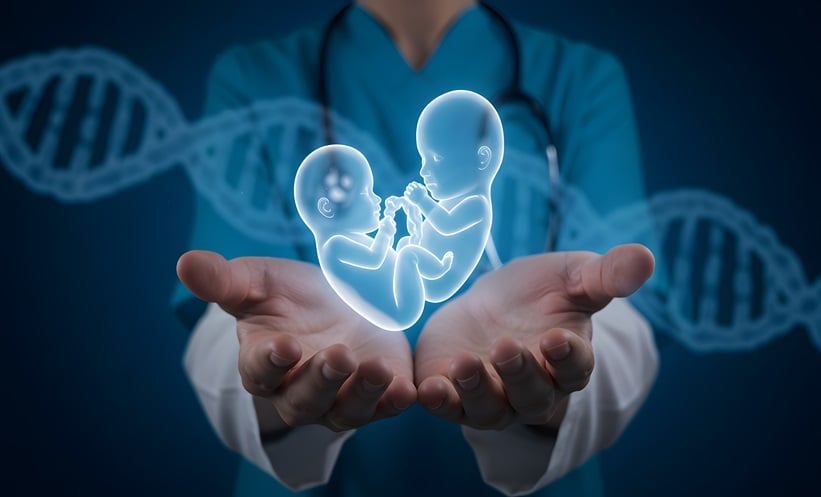RESEARCHERS have reported the first documented birth of healthy twin girls following the transfer of aneuploid embryos screened using pre-implantation genetic testing for aneuploidy (PGT-A).
Research indicates that over 98% of transfers involving uniformly aneuploid embryos do not result in chromosomally normal live births, making the following case exceptionally rare. A 42-year-old woman and her 49-year-old partner underwent IVF with next-generation sequencing-based PGT-A after the death of their daughter. Following detailed genetic counselling and informed consent, the couple chose to transfer three non-mosaic (uniformly aneuploid) female embryos and one euploid male embryo.
Genetic Testing Revealed Euploid Twins
The patient conceived a dichorionic, diamniotic twin pregnancy and delivered vaginally at 36 weeks following pre-term premature rupture of membranes. Postnatal chromosomal microarray testing confirmed that both infants had normal female karyotypes, indicating euploid twin girls. Genetic analysis of copy number variants and single nucleotide polymorphisms revealed the twins were dizygotic, or non-identical.
Now approaching seven years of age, both children remain healthy and show no developmental concerns. The authors suggested that this extraordinary outcome highlights potential limitations in current embryo screening technologies.
“This is a case of a couple who made the informed decision to undergo transfer of multiple aneuploid embryos, ultimately leading to the birth of healthy dizygotic twin girls,” the researchers stated. “Larger prospective studies are needed to understand the frequency of euploid live birth after aneuploid embryo transfer and the long-term health outcomes of such children.”
Implications for Embryo Selection in IVF
This case challenges established assumptions in reproductive medicine. While PGT-A is designed to identify viable euploid embryos, rare reports of live births from embryos diagnosed as aneuploid suggest that self-correction or diagnostic error may occasionally occur. The findings have inspired the Transfer of Aneuploid and Mosaic Embryo study, which will explore mechanisms and long-term outcomes in embryos previously considered non-viable.
Reference
Tise CG. et al. Healthy euploid dizygotic twin birth after transfer of nonmosaic aneuploid embryos. Fertil Steril. 2025;124(5):1016-23.








